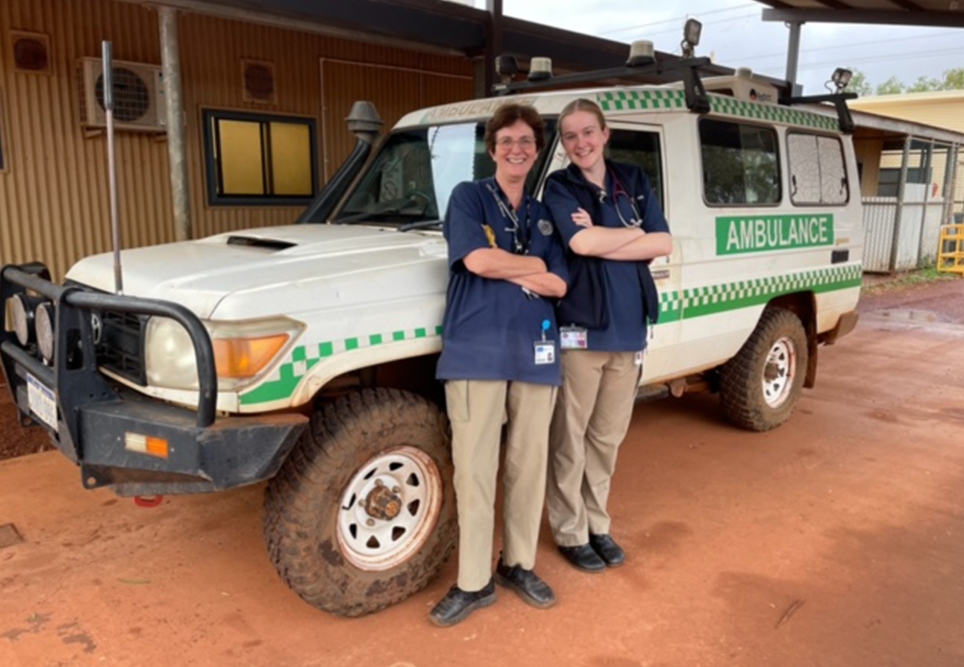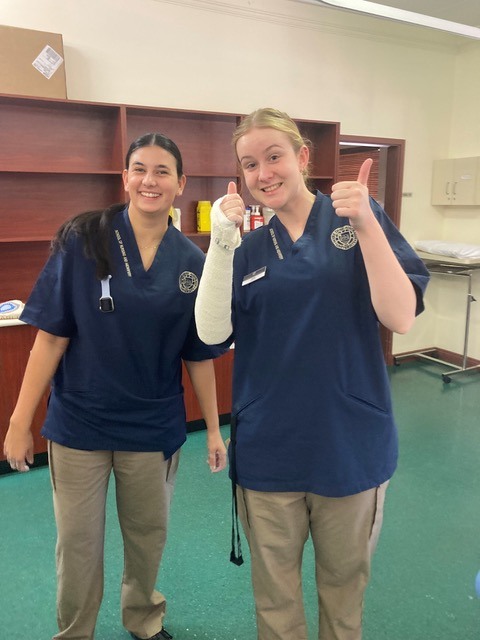This site may not work properly using older versions of Edge and Internet Explorer. You should upgrade your browser to the latest Chrome, Firefox, Edge, Safari, or any other modern browser of your choice. Click here for more information.
Your Stories
This is where we tell your stories, cover topical issues and promote meaningful initiatives.
Lessons from the Tanami Desert with Karri Withers
In her final undergraduate nursing placement, Karri Withers was fortunate to secure a position in the remote community of Balgo, WA, through the Majarlin Kimberley Centre for Remote Health. This placement highlighted the complexities of Aboriginal health and solidified Karri’s commitment to working in remote areas, while fostering a deep respect for the nurses dedicated to these communities.
For my final undergraduate nursing placement, I was lucky enough to interview for and attain a placement in Balgo through the Majarlin Kimberley Centre for Remote Health in Broome. Balgo is a remote community of around 400 people in the Tanami Desert in central WA close to the NT border.
Although I had worked remotely before in the West Kimberley as an Assistant in Nursing (AIN), the resources contained in a hospital make for a far different experience than the heavy reliance on personal experience and knowledge of Remote Area Nurses (RANs) and doctors working in remote clinics.
The sheer complexity of practice in this environ-ment makes me feel I could never put into words eloquently enough an understanding of what it is like and the internal struggle you feel trying to be a good nurse in a remote community.
I could see so many problems yet none were a simple fix. Aboriginal health is multi-faceted in the way that issues and social determinants stemming from colonisation compound each other to affect health adversely.
Although I gained an enormous amount of clinical knowledge, the most valuable part of my placement was the people I worked with and worked for. I was lucky to be in such a supportive environment with a focus on teaching and with managers who truly trust their RANs.
And of course, the patients make every hard thing you do, worth it. To get a ‘thank you’ or a smile, and to be the person patients feel comfortable with makes all the difference in my day and reminds me why I chose to be a nurse.
The advice that has stuck with me most since finishing the placement would be ‘just do what you can’. This was the best way I found to be a good student and still be able to enjoy what I was doing.
Nurses can’t be everything to everyone. I can’t fix a system single-handedly, but I can help in the individual choices I make to improve the health of my patients.
For me, this experience cemented my passion for Indigenous health in Australia and the importance of nurses in remote Australia. I have the utmost admiration for these nurses who are hugely educated on their patients, communities, and medicine. They are some of the most inspiring men and women I have ever had the privilege of working with.
This CRANAplus Undergraduate Remote Placement Scholarship was sponsored by HESTA. Find out more about Scholarships & Grants.

